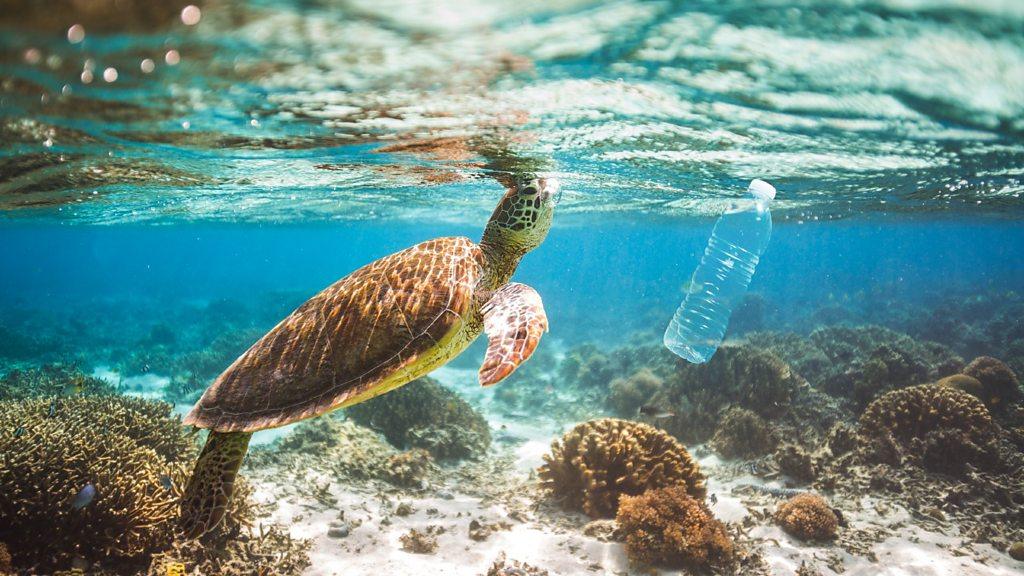First ever recycling for hidden plastic lab waste
- Published
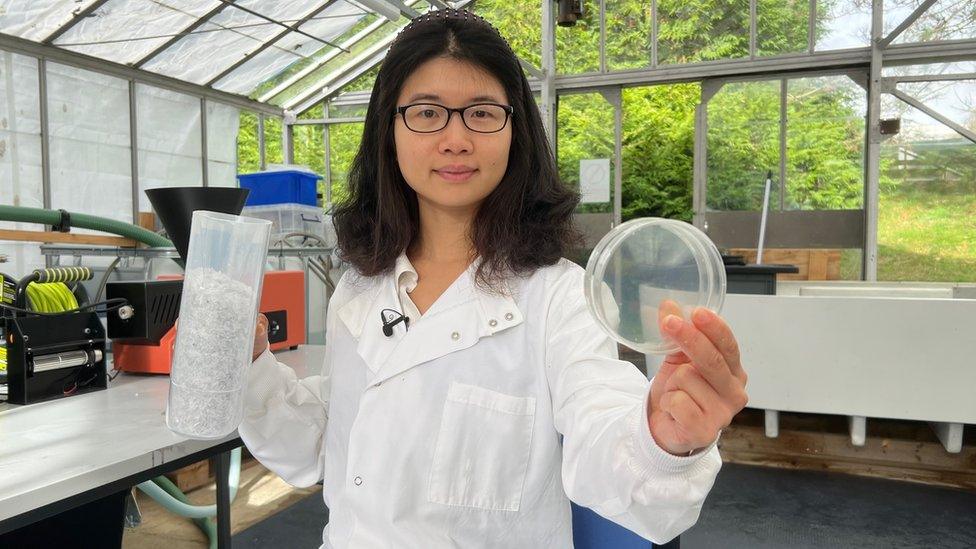
Dr Helen Liang is proud of her 100% recycled petri dish, the first ever made in the UK
Scientists have opened the UK's first facility that can recycle plastic waste from research labs.
Every year researchers use millions of pieces of plastic equipment. To avoid contaminating experiments, they are used once and then discarded.
A new start-up company, founded by a graduate from the University of Bath, is recycling them for safe reuse.
Dr Helen Liang, founder of LabCycle, described the breakthrough as "incredibly exciting".
Most people never see the plastic waste thrown out of research labs, because few people ever go inside them. But when Helen Liang was researching her PhD, she was appalled how much was just thrown away.
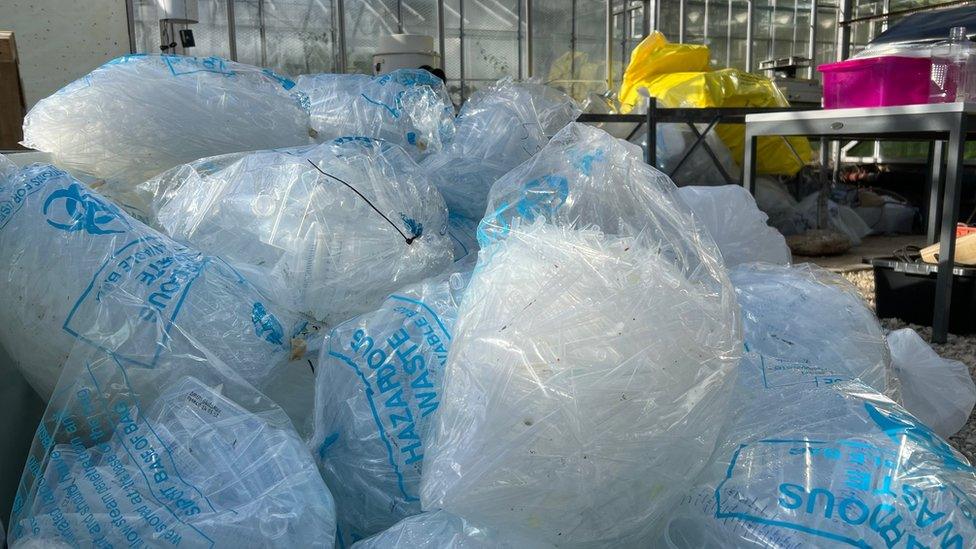
Five million tonnes of plastic waste are binned by research labs every year
She said: "People around me were asking, if we can recycle the plastics at home, why can't we recycle the lab plastics - it looks like really good quality.
"We go through bags and bags of them every week."
Across the world, it is the same story. In all, 5.5 million tonnes of tiny plastic tubes, pipette tips and other lab waste is binned.
Because the plastic has been used with hazardous chemicals or biological agents, they're nearly all incinerated, according to Dr John Husband, an expert in plastic recycling at The University of Bath.
He explained: "So that's just a load of plastic we've taken up from the ground, and we're burning up into the atmosphere, causing pollution."
Dr Helen Liang was determined to find a way to recycle the plastic. She discovered that waste companies are "scared" of the toxic chemicals and biological agents the plastic parts have been exposed to.
"So they don't know what to do," she told me.
"But we aren't scared of them because we work with them all the time."
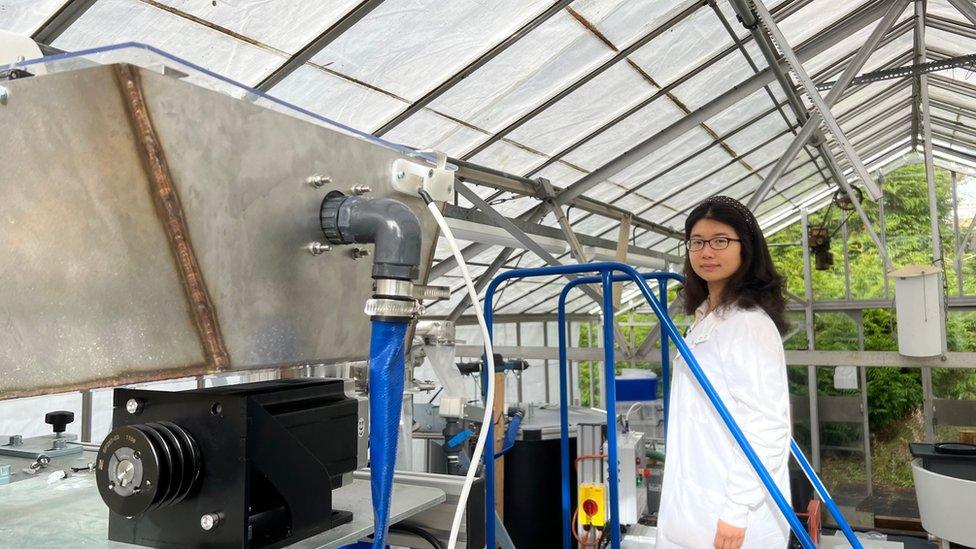
Dr Liang set up a test lab in a greenhouse at Bath University
The university gave her a small greenhouse to use. She assembled some machinery which first washes the plastic, then shreds it and decontaminates it. The end product is a small piece of plastic about the size of a grain of rice. This can be sent to a manufacturing company who can then form it back into plastic lab equipment.
She showed me a petri dish, made out of the recycled plastic. It is a little cloudier than the original from virgin plastic, but otherwise identical.
"It's incredible," she said. "Because I've been using this every day in the lab doing my PhD. And now we have made a new piece of lab equipment which is 100% recycled, it's really exciting."
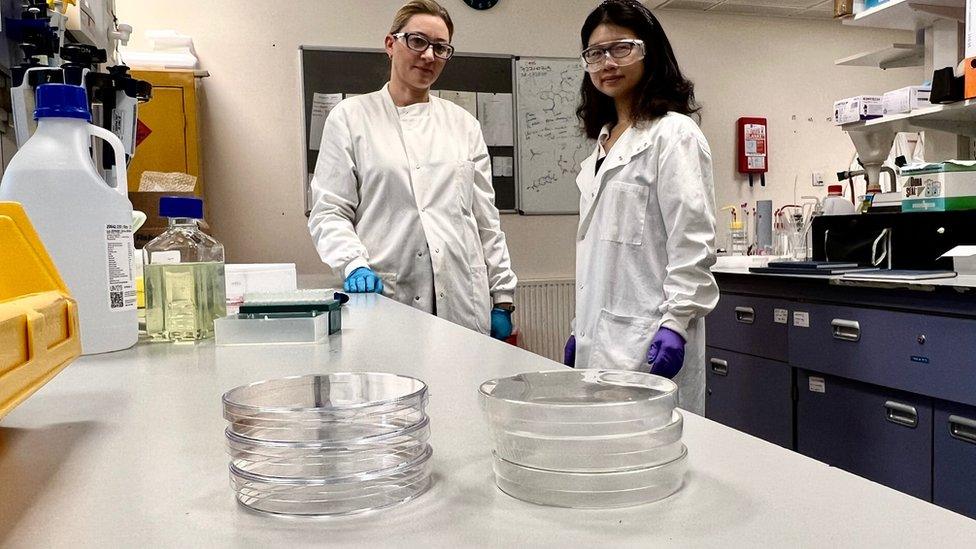
Dr Helen Liang with her recycled plastic petri dishes (right) and the original version (left)
LabCycle, the company she has set up to develop the recycling technology, is now looking for partners to manufacture lab equipment on a big scale.
And there are several firms across the west country making breakthroughs in plastic recycling.
Down the road in Melksham, another new firm is working on a much more everyday plastic item - Washing-up bowls.
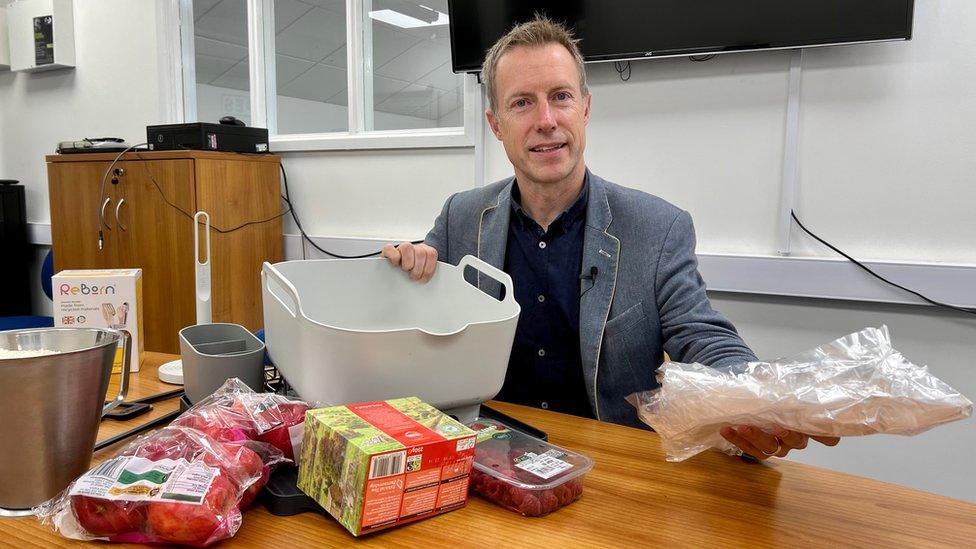
Brian Walmsley's new company is making washing-up bowls from food packaging waste
While you may never have seen a laboratory petri dish, you will have washed your own dishes thousands of times.
Alongside drying up racks, little stands to hold cutlery and utensils, chopping boards and the like, they form a huge market of 'home-wares'.
Brian Walmsley has been a product designer in home-wares for decades.
"But until now," he tells me, "they have all been made from virgin plastics, usually in Asia."
Mr Walmsley has worked for companies which are literally household names. You'll find his products in people's kitchens and bathrooms.
But every year 70 million homeware items are thrown away. Most end up in landfill, others are burned.
'New and different'
"Customers were telling us they wanted a recycled product if at all possible," he said.
The industry moved its manufacturing to Asia to cut costs, decades ago. To use a recycled plastic raw material, Mr Walmsley had to reverse that.
He found a small firm in Melksham, on a quiet industrial estate.
Here, they are now making washing up bowls out of plastic recycled from food packaging waste. The kind of films that keep raspberries in a punnet, or wrap a bag of apples, or encase a cardboard box of tea bags.
"Actually making something here in the UK from recycled materials is really new and different," he said.
His company, called ReBorn, claims it reduces the carbon footprint of a typical washing-up bowl by 79%, after analysis by an independent consultancy.
Back in Bath, Dr Husband has been analysing just how much plastic actually gets recycled in the UK.
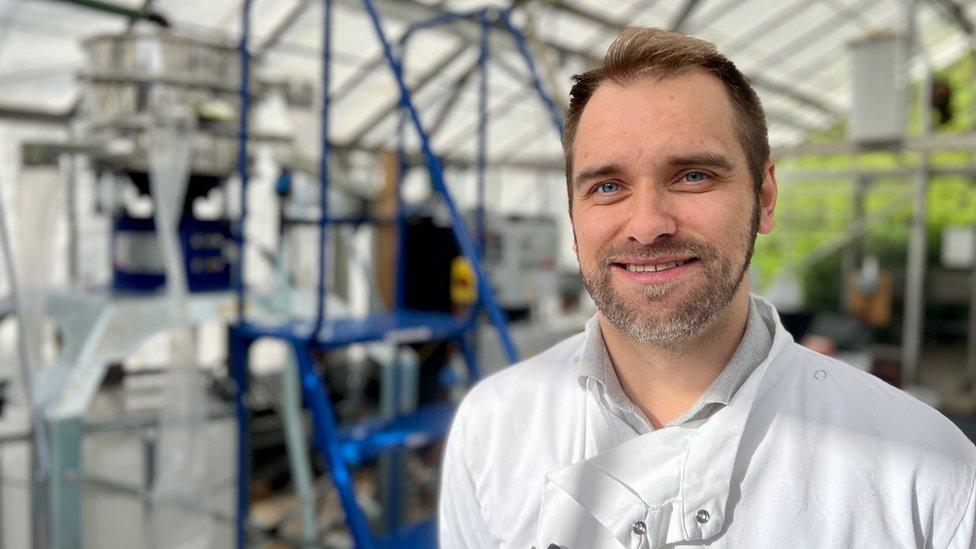
Dr John Husband, of the University of Bath, says only 30% of plastic is recycled in the UK
"We recycle about 30% of waste plastic at the moment," he explained.
"About 40% we are actually just incinerating, and the rest is left to landfill, or just to pollute our environment.
"That really needs improving if we are ever to have a future with no plastic waste and a genuinely circular economy."
It is a huge task, but in Bath and in Melksham, two new start-ups are tackling it. One petri dish and washing-up bowl at a time.

Follow BBC West on Facebook, external, X, external and Instagram, external. Send your story ideas to: bristol@bbc.co.uk , external
- Published13 July 2023
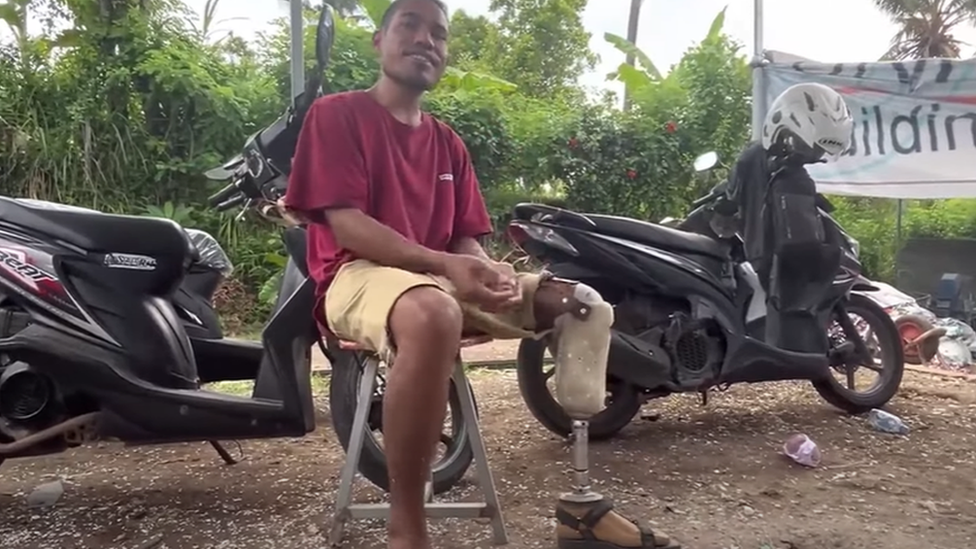
- Published3 July 2022
